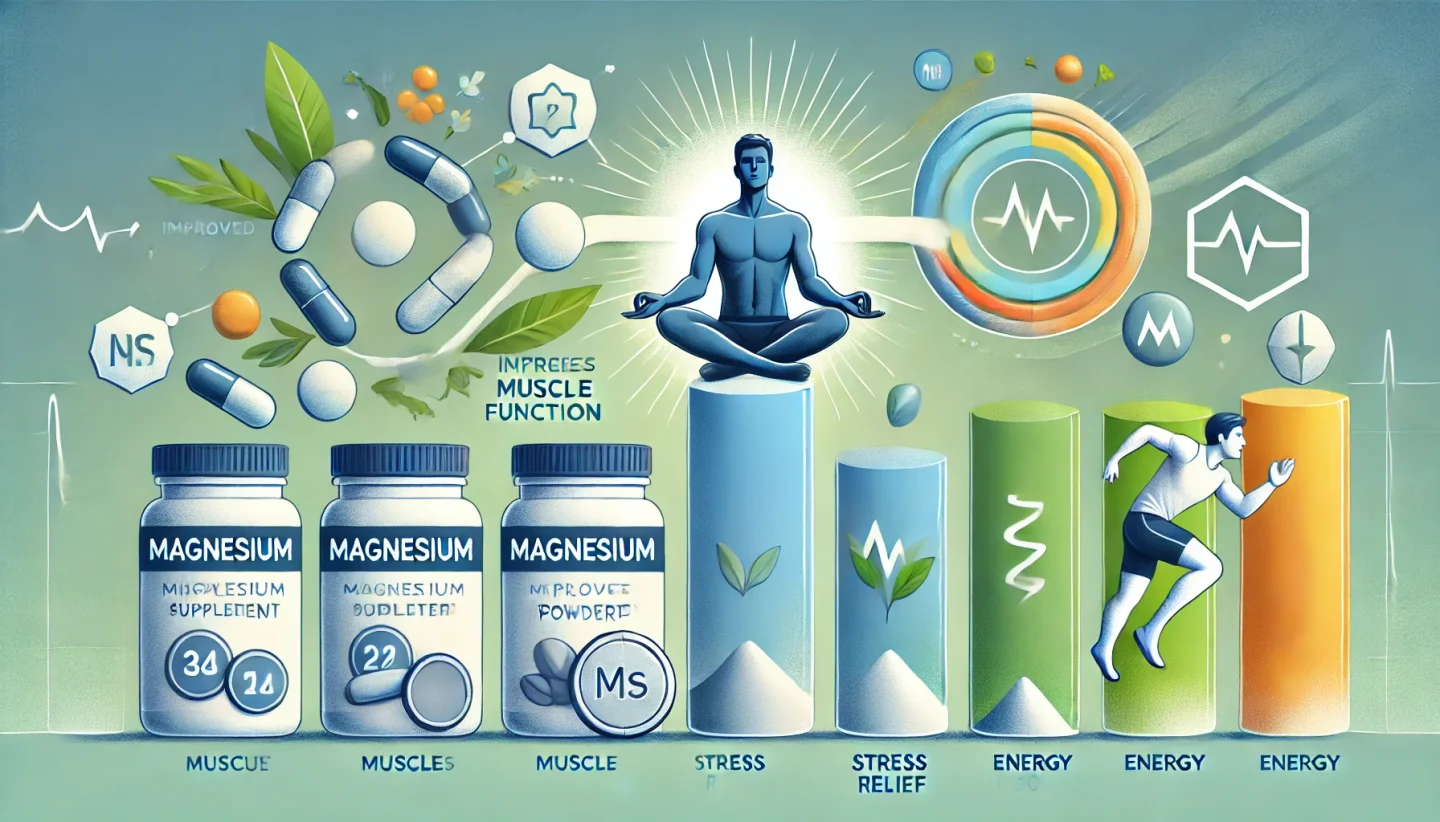Magnesium is an essential mineral that plays a critical role in hundreds of biochemical reactions within the body. Despite its importance, many people do not get enough magnesium through diet alone, making supplementation increasingly popular. In this article, we will explore what magnesium is, when you should take it for maximum benefit, and how it can positively impact different age groups and genders.
Magnesium is an essential mineral that plays a vital role in numerous bodily functions, including muscle and nerve function, energy production, and the regulation of blood pressure. For many people, ensuring they have adequate magnesium levels can improve sleep quality, reduce muscle cramps, and bolster overall well-being. Factors such as diet, stress, and certain medications can influence how much magnesium the body needs, making it important to consider both daily intake and timing for optimal results.
Generally, the best time to take magnesium is in the evening, preferably around dinner or before bedtime. Taking magnesium later in the day can help promote relaxation and support better sleep, as it assists in calming the nervous system and relaxing the muscles. Additionally, pairing magnesium with food can aid in absorption and reduce any potential stomach discomfort. However, individual needs may vary, and it’s always recommended to consult a healthcare professional to determine the most suitable dosage and timing for your specific circumstances.

What Is Magnesium?
Magnesium is a mineral that contributes to numerous bodily functions, including:
- Energy production: It helps convert food into energy.
- Muscle and nerve function: It supports muscle contraction and relaxation, as well as healthy nerve transmission.
- Bone health: It works alongside calcium and vitamin D to maintain strong bones.
- Heart health: Adequate magnesium levels help regulate heartbeat and blood pressure.
- Enzyme reactions: It serves as a cofactor in over 300 enzymatic reactions.
Foods rich in magnesium include leafy green vegetables (spinach, kale), nuts (almonds, cashews), seeds (pumpkin seeds, chia seeds), whole grains, and legumes. However, due to modern agricultural practices and dietary habits, many individuals find it challenging to meet their magnesium needs through food alone.
When Is the Best Time to Take Magnesium?
For a healthy individual looking to maximize the benefits of magnesium supplementation, timing can make a difference. Here are a few considerations:
Before Bed:
- Magnesium has a calming effect on the nervous system and can help improve sleep quality. Taking magnesium supplements about 30 minutes before bedtime may help relax muscles and support a more restful sleep.
With Meals:
- Some people experience mild stomach upset or laxative effects when taking magnesium on an empty stomach. Taking magnesium with meals can enhance absorption and reduce the chance of digestive discomfort.
Divided Doses:
- If you require a higher daily dose of magnesium, splitting it into two or three smaller servings throughout the day (e.g., morning, midday, and evening) can help maintain consistent blood levels and improve absorption.
Ultimately, the “best” time depends on your personal schedule and lifestyle. If you’re primarily interested in its relaxation benefits, take it closer to bedtime. If you want to improve absorption and reduce side effects, pair it with meals.
General Benefits of Magnesium
- Improved Muscle Function: Helps prevent muscle cramps and supports muscle recovery.
- Enhanced Sleep: Assists with relaxation and may improve sleep quality.
- Stress Reduction: Helps regulate neurotransmitters that promote calmness.
- Energy Support: Involved in ATP (energy) production for overall vitality.
- Bone Health: Promotes calcium absorption for stronger bones.
These broad benefits make magnesium supplementation valuable for people of all ages and genders.
Benefits for Young People of Magnesium
- Support for Growth and Development: Young people are in a rapid phase of growth. Magnesium supports the development of strong bones and a healthy metabolism.
- Enhanced Athletic Performance: Magnesium can help reduce muscle cramps and support energy production, which is beneficial for active teenagers and young adults involved in sports.
- Better Focus and Mood: Adequate magnesium levels aid in healthy brain function and neurotransmitter regulation, potentially improving concentration and reducing stress during school or college.
Benefits for Middle-Aged Adults of Magnesium
- Stress Management: Balancing work, family, and personal responsibilities can lead to stress. Magnesium supports relaxation and may help combat fatigue.
- Heart Health: Magnesium contributes to normal blood pressure regulation and cardiovascular health, crucial during this life stage.
- Metabolic Support: It helps maintain balanced blood sugar levels when paired with a healthy diet and regular exercise.
Benefits for Older Adults of Magnesium
- Bone Density: Magnesium is key for bone health, working synergistically with calcium and vitamin D to help maintain bone density and reduce the risk of osteoporosis.
- Muscle Function: As muscle mass tends to decline with age, magnesium supports muscle performance and can reduce muscle cramps or spasms.
- Cardiovascular Support: By helping regulate blood pressure and heartbeat, magnesium may lower the risk of heart-related issues in older adults.
- Cognitive Function: Some research suggests magnesium may play a role in maintaining cognitive health as we age.
Benefits for Women of Magnesium
- Hormonal Balance: Magnesium helps regulate hormones and can alleviate some symptoms of PMS (premenstrual syndrome), such as mood swings, bloating, and cramps.
- Bone Health: Women, especially post-menopausal women, are at higher risk for osteoporosis. Magnesium helps maintain bone density and strength.
- Pregnancy Support: Adequate magnesium is essential during pregnancy for fetal development and to support the mother’s health.
Benefits for Men of Magnesium
- Muscle Strength and Recovery: Magnesium supports protein synthesis and muscle recovery, beneficial for men who engage in regular exercise or strength training.
- Heart Health: By helping control blood pressure and supporting healthy heart rhythm, magnesium is vital for overall cardiovascular health.
- Stress and Energy Levels: Adequate magnesium intake may help maintain stable energy levels and reduce stress, supporting both physical and mental performance.
Magnesium is a versatile mineral that plays a vital role in maintaining optimal health across every stage of life. While eating a balanced diet rich in magnesium is ideal, supplementation can be beneficial for those who struggle to meet their daily needs. The best time to take magnesium generally depends on your health goals and daily routine:
- Bedtime for improved sleep and relaxation.
- With meals to enhance absorption and reduce side effects.
- Divided doses throughout the day for larger supplemental needs.
Regardless of age or gender, magnesium offers notable health advantages—from supporting bone strength and muscle function to aiding in stress management and hormonal balance. If you’re considering a magnesium supplement, consult with a healthcare professional to determine the best dosage and form for your individual needs.








